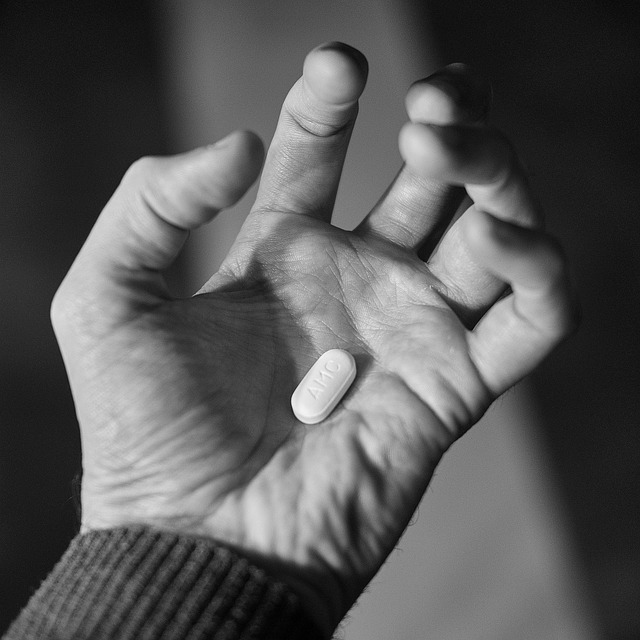Anxiety, affecting millions globally, significantly impacts daily life with physical and psychological manifestations. Red light therapy offers a natural alternative for managing anxiety symptoms by mitigating physical effects, promoting relaxation, and enhancing well-being through mitochondrial stimulation and neurotransmitter influence. Beyond red light therapy, practices like mindfulness meditation, yoga, breathing exercises, acupuncture, massage therapy, and herbal remedies provide holistic approaches to calming minds and bodies. Incorporating these techniques into daily routines can significantly aid in managing anxiety symptoms and improving mental well-being.
Anxiety is a prevalent mental health concern, affecting millions globally, and its impact can be profound. In this article, we explore innovative ways to manage anxiety symptoms through alternative treatments, specifically focusing on red light therapy. We delve into how this natural approach can calm the mind and reduce stress.
Beyond red light therapy, we uncover various alternative treatments, providing a comprehensive guide to alleviating anxiety. Learn how these techniques, when incorporated into your routine, can significantly improve mental health and well-being.
Understanding Anxiety and Its Impact
Anxiety is a common mental health condition that affects millions worldwide, characterized by persistent feelings of worry, fear, and unease. It can significantly impact daily life, hindering one’s ability to manage anxiety symptoms effectively. The condition often manifests as generalized anxiety disorder, panic attacks, or social anxiety, each with its unique set of challenges. Understanding the root causes and triggers of anxiety is essential in developing strategies for managing anxiety symptoms.
The impact of anxiety extends beyond mere psychological distress. It can lead to physical symptoms such as increased heart rate, muscle tension, insomnia, and fatigue. Chronic anxiety may also contribute to long-term health issues if left unaddressed. Therefore, adopting alternative treatments like red light therapy offers a promising approach to mitigate anxiety’s effects, promote relaxation, and improve overall well-being by targeting both the mind and body.
Red Light Therapy: A Natural Approach to Calming the Mind
Red Light Therapy: A Natural Approach to Calming the Mind
Red light therapy, also known as low-level laser therapy, is an alternative treatment gaining traction for its potential benefits in managing anxiety symptoms. Unlike traditional therapies that often focus on medicating or psychologically treating anxiety, red light therapy takes a more natural approach by promoting cellular repair and enhancing circulation. By emitting specific wavelengths of light, this non-invasive technique stimulates mitochondria, the energy producers within cells, leading to improved cellular function and reduced inflammation. This process can have a profound effect on calming the mind and body, making it a promising alternative for those seeking holistic solutions to manage anxiety symptoms.
The calming effects of red light therapy are attributed to its ability to interact with the body’s natural photonic balance. Light exposure at specific wavelengths can influence neurotransmitters like serotonin, known for regulating mood and promoting relaxation. Regular sessions of red light therapy may help reduce the severity of anxiety symptoms by reducing stress hormones, improving sleep quality, and enhancing overall well-being. As research continues to explore this modality, many find hope in its natural, non-pharmacological approach to managing anxiety symptoms.
Exploring Other Alternative Treatments for Anxiety Relief
Anxiety is a complex condition that often requires a multifaceted approach for effective management of anxiety symptoms. While red light therapy has gained attention for its potential benefits, there are numerous other alternative treatments worth exploring. Many people have found relief through practices like mindfulness meditation, yoga, and deep breathing exercises, which can help calm the mind and body, reducing anxious thoughts and physical tension.
Acupuncture, massage therapy, and herbal remedies are also emerging as valuable tools in managing anxiety symptoms. Acupuncture involves inserting thin needles into specific points on the body to stimulate natural healing responses, while massage therapy focuses on releasing tension in muscles and promoting relaxation. Herbal remedies, such as valerian root and chamomile, have been used for centuries to soothe nerves and support mental well-being. These alternative approaches often complement traditional therapies, providing a holistic approach to managing anxiety and improving overall quality of life.
Incorporating These Techniques into Your Routine for Better Mental Health
Incorporating alternative treatments like red light therapy into your daily routine can be a game-changer in managing anxiety symptoms. These techniques offer a gentle, non-invasive approach to calming the mind and soothing the body. Start small, perhaps with a 10-minute session of red light exposure each day, and observe how it makes you feel. Consistency is key; regular practice may lead to significant improvements in your overall mental well-being.
Consider integrating these practices into your self-care regimen alongside other proven stress-reduction methods such as meditation or deep breathing exercises. Over time, you might find that these alternative treatments become valuable tools in your journey towards better mental health, offering a sense of tranquility and resilience against anxiety’s challenges.
Anxiety can significantly impact our daily lives, but there are alternative treatments like red light therapy and various calming techniques that offer natural relief. By understanding anxiety’s effects and exploring these holistic approaches, individuals can effectively manage anxiety symptoms and enhance their overall mental well-being. Incorporating these practices into your routine may provide a sense of calm and balance, allowing you to navigate life’s challenges with greater resilience.
